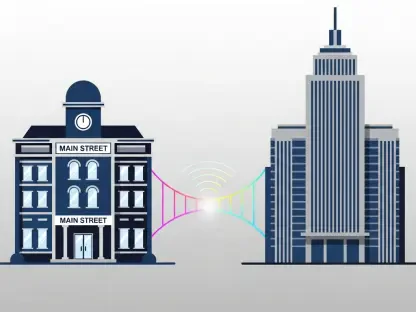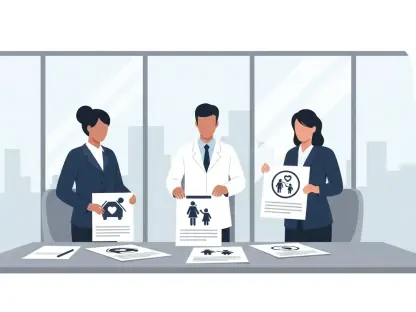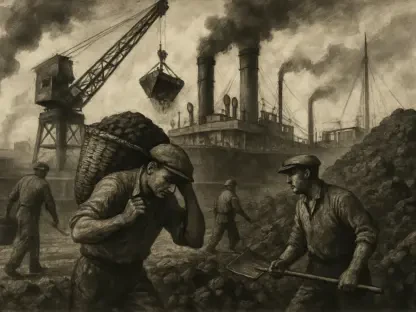Simon Glairy is a recognized expert in the fields of insurance and Insurtech, specializing in risk management and AI-driven risk assessment. With an extensive background in these areas, Simon provides deep insights into the complex interplay between insurance law and municipal liability. This interview delves into the intricacies of a pivotal case, Schulze v. City of Newburgh Fire Department, and its broader implications for public sector insurers and municipalities.
Can you provide an overview of the Schulze v. City of Newburgh Fire Department case? Who is Adam Schulze and what injury did he sustain? What were the key laws and statutes involved in this case?
Adam Schulze is a firefighter who worked for the City of Newburgh. On April 30, 2012, while responding to a fire, he sustained serious neck and back injuries. This case involves several key pieces of legislation, including General Municipal Law § 207-a(1) and (2), Retirement and Social Security Law § 363-c, as well as Workers’ Compensation Law §§ 25(4)(a) and 30(2). The essence of the case revolves around Schulze’s injury, his subsequent retirement benefits, and the municipality’s attempt to get reimbursed for overpaid disability supplements.
What was the significance of the April 10, 2025, decision from the New York Court of Appeals?
The New York Court of Appeals decided that municipalities cannot recover overpaid disability supplements from a retired firefighter’s workers’ compensation benefits. This ruling underscores the boundaries of employer reimbursement rights under state workers’ compensation and municipal disability laws, setting a precedent that impacts how such cases are handled.
How did the city of Newburgh initially handle Schulze’s disability and workers’ compensation benefits? What benefits did Schulze receive and for what duration? What changes occurred in April 2016 regarding his benefits?
Initially, the city continued paying Schulze his full salary under General Municipal Law § 207-a(1) while he remained on the payroll. From May 2012 to December 2015, he also received workers’ compensation benefits. In April 2016, Schulze was granted performance of duty (POD) retirement benefits, which meant he left the city’s payroll and began to receive a pension, along with supplementary payments to bridge his retirement and his former salary.
What prompted Schulze to request a hearing before the Workers’ Compensation Board in 2019? What specific periods did he claim unpaid workers’ compensation benefits for?
Schulze requested a hearing before the Workers’ Compensation Board in 2019 to claim unpaid workers’ compensation benefits for two specific periods: December 2015 to April 2016, when he was still on the payroll, and from April 2016 onwards, after he had retired.
What was the City of Newburgh’s position on Schulze’s claims during the 2019 hearing? What reimbursement did the city seek, and for which periods?
The City of Newburgh acknowledged Schulze’s right to the workers’ compensation but sought reimbursement for the previous payments made under General Municipal Law § 207-a(1) before his retirement and § 207-a(2) after his retirement.
What was the outcome of the Workers’ Compensation Law Judge’s ruling? How did the ruling distinguish between pre-retirement and post-retirement benefits?
The judge granted reimbursement for payments made before Schulze retired, under § 207-a(1), but denied it for post-retirement payments under § 207-a(2). The ruling distinguished that the post-retirement payments did not qualify as wages under workers’ compensation statutes.
How did the Court of Appeals rule on the matter of reimbursement for post-retirement payments? How did Chief Judge Rowan D. Wilson explain the nature of § 207-a(2) payments?
The Court of Appeals ruled against reimbursement for post-retirement payments. Chief Judge Rowan D. Wilson explained that § 207-a(2) payments are considered “pension supplements” rather than wages, meaning they’re not eligible for reimbursement under the workers’ compensation statutes.
What are the meanings of “salary or wages” within the context of the Workers’ Compensation Law §§ 25(4)(a) and 30(2)? Why were § 207-a(2) payments not considered to fall under these categories?
Under these statutes, “salary or wages” refer to compensation paid to employees who are still on payroll. § 207-a(2) payments do not fit this definition because they are pension supplements given to retired firefighters, not current employees.
What implications does the ruling have for public sector insurers and municipalities? How does the ruling affect future claims and reimbursements?
The ruling limits municipalities’ ability to seek reimbursement for certain types of payments, emphasizing the need for them to act promptly under the statutory guidelines. Public sector insurers and municipalities must ensure timely execution of claims to avoid financial exposure.
How does this ruling impact the timing of seeking workers’ compensation awards? What advice would you give to municipal employers and insurers to avoid financial exposure?
Municipal employers and insurers should ensure claims are processed and coordinated in a timely manner, avoiding delays that can lead to financial exposure. This proactive approach is crucial to align with statutory deadlines and avoid losing reimbursement rights.
Can you explain what General Municipal Law § 207-a(4-a) entails and how it was interpreted in this case?
General Municipal Law § 207-a(4-a) allows municipalities to reduce § 207-a(2) payments once workers’ compensation is awarded. However, the court interpreted this provision as forward-looking, not authorizing retroactive reimbursement via the Workers’ Compensation Board, putting the onus on the city to seek compensation awards promptly.
What precedent did the court cite in its decision? How does the 1987 decision in Matter of Harzinski v. Village of Endicott relate to this case?
The court cited the Matter of Harzinski v. Village of Endicott, which similarly held that § 207-a(2) payments are not subject to workers’ compensation reimbursement. This precedent reinforces the distinctions between types of payments and their eligibility for reimbursement.
In terms of litigation and administrative processes, what lesson can public sector risk managers take away from this case?
Public sector risk managers should learn the importance of timely action and thorough coordination in handling overlapping benefit systems. Delays or missteps in seeking awards or reimbursements can result in significant financial losses.
What potential remedies might the City of Newburgh explore outside the workers’ compensation system to recover overpayments?
The city could consider plenary actions or other legal avenues outside the workers’ compensation system to recover the overpayments, although this decision did not address those potential remedies.
Do you have any advice for our readers?
Ensure all processes are meticulously documented, and act swiftly within statutory timelines. Staying informed about the latest rulings and their implications can help mitigate risks and avoid costly errors in managing public sector insurance claims.









